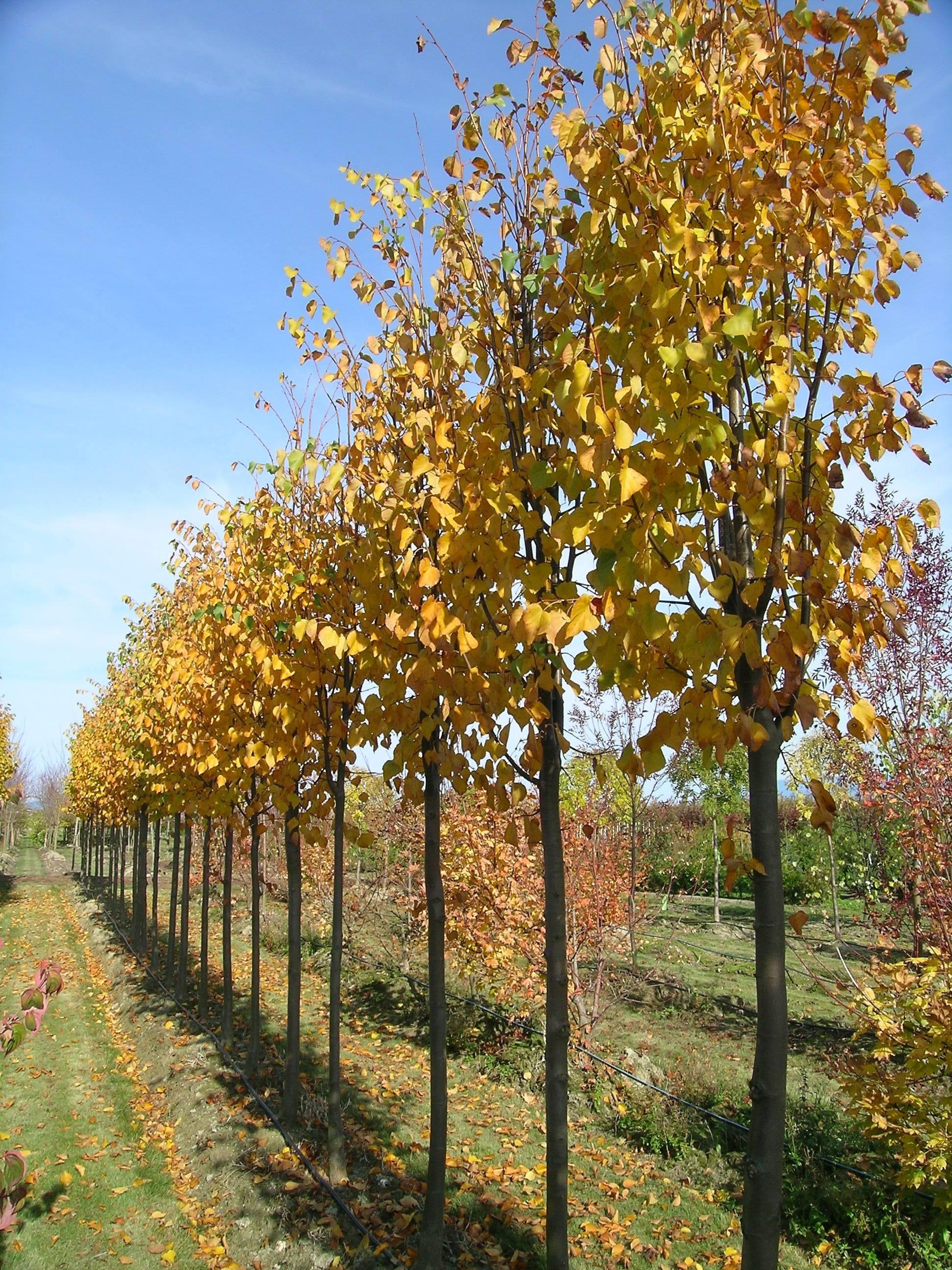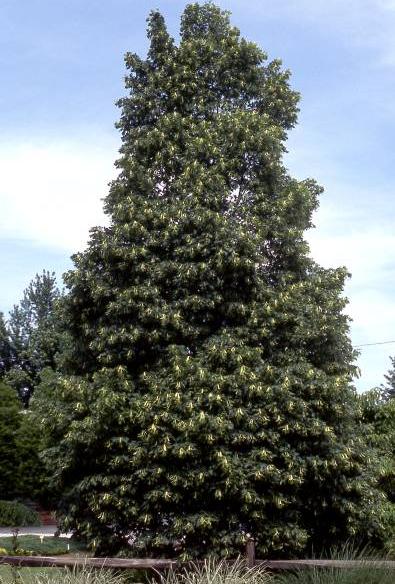Corinthian Linden
Tilia cordata ‘Corinthian’

 As growing spaces in cities get smaller and narrower, trees with limited width crowns are needed. Another in our palette of narrow trees to recommend is the Corinthian Linden. This is the narrowest of the Lindens, and appears to be a good new selection, although not heavily planted yet. This tree, with compact pyramid form, has an ultimate mature size of 45’ tall by 15’ wide, which is relatively narrow. The branch pattern appears to be uniform around a strong central leader, with good attachment. The leaves are smaller and denser than the rest of the species, with a dark green color. It has a very dense crown of leaves, so you can appreciate the very complete shade it provides. Like all young Lindens, the bark is smooth. As they mature, they exhibit a finely fissured clean and uniform gray bark.
As growing spaces in cities get smaller and narrower, trees with limited width crowns are needed. Another in our palette of narrow trees to recommend is the Corinthian Linden. This is the narrowest of the Lindens, and appears to be a good new selection, although not heavily planted yet. This tree, with compact pyramid form, has an ultimate mature size of 45’ tall by 15’ wide, which is relatively narrow. The branch pattern appears to be uniform around a strong central leader, with good attachment. The leaves are smaller and denser than the rest of the species, with a dark green color. It has a very dense crown of leaves, so you can appreciate the very complete shade it provides. Like all young Lindens, the bark is smooth. As they mature, they exhibit a finely fissured clean and uniform gray bark.
In general, Lindens appear to be strong and tough street trees, willing to grow in the most inhospitable places. They are relatively easy to transplant, and pruning small limbs is a pleasure, as the wood is comparatively soft. As Lindens age, they have a tendency to exhibit what we arborists observe as included bark. To my surprise, and others I have spoken to, we seldom see any significant branch failure. The point being not to overreact to the included bark in a linden. I would consider their sidewalk lifting ability to be moderate; i.e. possible, but not excessive. Again, like many Lindens, the most significant insect problems are the Aphids and resulting honeydew; however, one source reports the Corinthian with less Aphid issues. This may occur occasionally, but not every year.
Don’t confuse this ‘Corinthian’ cultivar with the slightly wider ‘Chancellor’ cultivar, with almost twice the width to 30’. However, the ‘Chancellor’ is still narrower than the standard ‘Greenspire’. Please feel free to send me any other relevant information you have on this species.
ISA Certified Arborist #0135
ASCA Registered Consulting Arborist #356 CLICK HERE FOR MORE TREE PROFILES
Certified Tree Risk Assessor #PNW-0327
